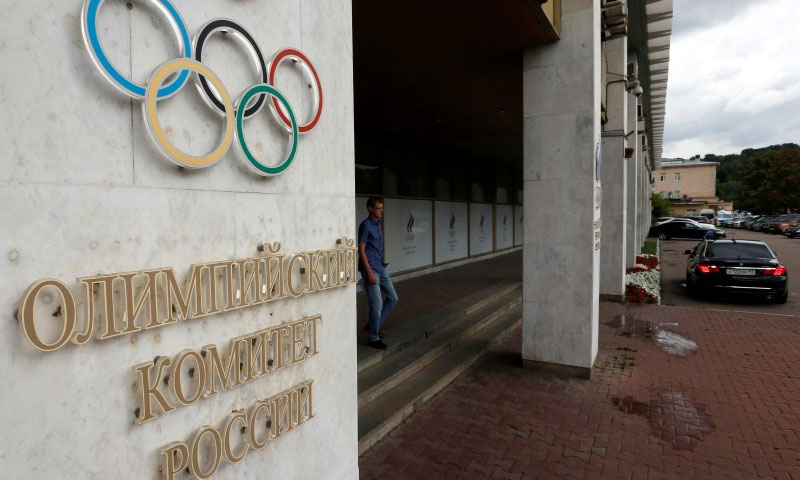
Faced With Prospect of Russian Olympics Ban, IOC Chooses Compromise
After the Olympics' primary antidoping watchdog argued that Russian athletes should be banned from competing in Rio altogether, the International Olympic Committee decided "individual justice" was the right approach. With just two weeks until the Summer Games begin, Russian athletes will have to gain approval from the individual governing bodies for their sports before being allowed to compete.
The World Anti-Doping Agency (WADA) called for the world’s largest country to stay out of the Rio Olympics, but in the end, Russian athletes will have a path to competition next month.
That’s the result of a compromise announced by the International Olympic Committee over the weekend, roughly a month after the IOC forged a similar arrangement for Russian track and field athletes.
But WADA raised the stakes last week, pointing out through an independent investigation, the McLaren report, that Russia’s doping problems are widespread. WADA Director General Olivier Niggli argued that “culture change needs to be cascaded from the very top in order to deliver the necessary reform that clean sport needs.”
In the end, the IOC executive board decided to strike a balance between punishment and individual rights. Athletes will need to be approved for competition by the federations for each individual sport, applying criteria set by the IOC.
“We had to balance the collective responsibility and the individual justice to which every human being and athlete is entitled to,” IOC President Thomas Bach said, according to a report from The Associated Press.
WADA was disappointed by the decision, especially in the wake of the bombshell independent investigation it released last week, which led WADA to call for a blanket ban on Russian athletes.
“While WADA fully respects the IOC’s autonomy to make decisions under the Olympic Charter, the approach taken and the criteria set forward will inevitably lead to a lack of harmonization, potential challenges, and lesser protection for clean athletes,” Niggli said in a statement on Sunday.
The group remained steadfast the McLaren report exposed Russia’s state-organized doping program “beyond a reasonable doubt.”
The International Association of Athletics Federations (IAAF), which last month banned Russian track and field athletes from competing in Rio, said it would not undertake a second review of those athletes. But it pledged to help other organizations that would now have to implement the same process just days before the start of the Summer Games.
“We have created and been through the process. We know how hard it is emotionally and rationally to get the process right,” IAAF President Sebastian Coe said in a statement.
The Russian Olympics Committee headquarters in Moscow. (Sergei Karpukhin/Reuters)






Comments